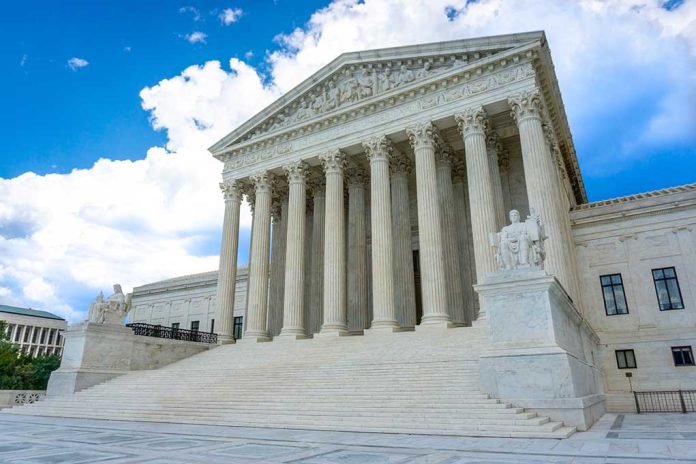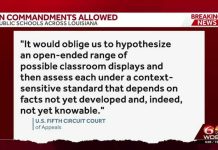
Mark Zuckerberg’s admission of Meta’s involvement in censorship raises concerns about free speech and government overreach.
Key Takeaways
- Mark Zuckerberg acknowledged Meta’s role in censorship, particularly regarding Covid-19 content.
- The Supreme Court dismissed a crucial free speech case, Murthy v. Missouri, on technical grounds.
- Critics argue the Court’s decision may set a dangerous precedent for future censorship.
- Justice Samuel Alito’s dissent warns of potential consequences for free speech.
- Concerns are growing about a “censorship-industrial complex” and its impact on First Amendment rights.
Zuckerberg’s Admission and the Censorship Debate
Meta CEO Mark Zuckerberg admitted to his company’s involvement in content censorship, particularly regarding discussions about Covid-19. This revelation has reignited the debate over free speech in the digital age and the extent of government influence on social media platforms.
Zuckerberg’s candid acknowledgment raises serious questions about the legality of government pressure on social media companies to suppress certain content. The Meta CEO stated bluntly, “I don’t think that the pushing for social media companies to censor stuff was legal.” This admission comes in the wake of the controversial Supreme Court case, Murthy v. Missouri, which brought to light allegations of government coercion in social media censorship.
Following Mark Zuckerberg’s putative mea culpa for having made Meta complicit in the largest censorship regime in American history, and his vow to restore free expression on his platforms, the CEO made perhaps his most consequential statement of all in an interview with Joe… pic.twitter.com/sVo4ebxxtS
— Benjamin Weingarten (@bhweingarten) January 22, 2025
The Supreme Court’s Controversial Decision
The Murthy v. Missouri case brought to light what critics are calling a “censorship-industrial complex,” alleging collusion between government agencies and social media platforms to suppress certain viewpoints. Despite the gravity of these allegations, the Supreme Court dismissed the case on technical grounds, citing a lack of standing.
Justice Samuel Alito’s dissenting opinion highlighted the Court’s failure to address the core free speech issues at stake. Alito warned that the dismissal could serve as a blueprint for future government officials seeking to control public discourse. His concerns underscore the potential long-term consequences of the Court’s decision on First Amendment rights.
Implications for Future Free Speech Battles
The Supreme Court’s decision has been widely criticized as a failure to protect free speech, potentially opening the door for further government overreach in other areas. Chief Justice John Roberts’ focus on combating “disinformation” has been viewed by some as a potential threat to free speech rights, raising concerns about the judiciary’s commitment to upholding First Amendment protections.
In response to these developments, some political figures, including members of the Trump administration and certain Republicans in Congress, have vowed to dismantle what they term the “censorship-industrial complex.” These efforts reflect a growing sentiment that the courts may no longer be reliable guardians of First Amendment rights, necessitating legislative and executive interventions to safeguard free speech.







